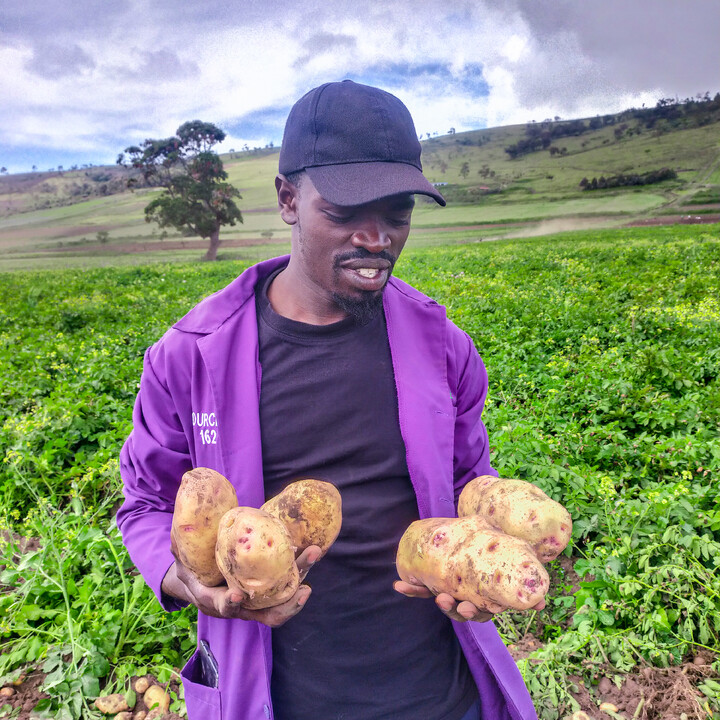
Home > Where We Work > Biakoye District
Biakoye District
Food and Nutrition Security and Resilience to Climate Change Program
Feeding and nourishing a growing population is one of this century’s biggest challenges. Drought and floods made worse by climate change have increased. This food security challenge. Climate change is affecting all of us, but its impacts are not equal. Poor people have done the least to contribute to this climate emergency, but they are paying the highest price for its consequences. At the same time, they have the least resources to deal with extreme weather events.

Unpredictable rainfall and ascending
temperatures are jeopardising
agricultural yields and putting people’s
food and nutrition security at risk.In 2016, climate resilience was integrated across 30% of FHI’s long-term development projects in the Biakoye District. FHI is committed to helping five thousand poor and vulnerable people in the District increase their food and nutrition security and their resilience to climate change by 2028.
We are working in communities affected by extreme weather events in the Biakoye District to adapt their farming practices to climate change. Farmers replace corn and wheat crops with forgotten varieties of cereals and native potatoes. These crops are more resistant to climatic hazards; they need two to three times less water; and they provide more nutrition for families.
FHI is assisting the local communities in the Biakoye District to learn new agricultural, water, and food storage techniques, as well as to develop construction skills to better prepare for disasters. Peter Ahoezi, a 48-year-old father of five, is concerned by the impact of the increasingly unpredictable weather on her family’s lives. As part of FHI’s community-based adaptation approach, Peter is sharing her newfound knowledge with the wider communities, discussing with a small group of other community members how to address some of the impacts they are already experiencing due to the changing climate.
In Biakoye District, irregular rainfalls and higher temperatures threaten farmers’ livelihoods, agricultural productivity, and food security. Local communities in the district are highly vulnerable because of poor soils, limited access to water, infrastructure, and transport, reduced fish stocks, and shortened fishing and farming seasons. FHI is using Farmer Field Schools to strengthen farmers’ resilience and build their capacities in sustainable agriculture techniques. In these field schools, farmers meet on a weekly basis to learn about improving soil fertility and the importance of crop variety and to experiment with different farming techniques. This allows them to observe and analyze how and why different outcomes are generated to be able to make informed decisions about farming techniques.

Want to hear more from us?
Find out how we’re changing the lives of vulnerable people and promoting environmental sustainability.
This email newsletter is administered based on our privacy policy, which tells you more about how we use your information. You can unsubscribe at any time. Over 18s only.
© 2023- Future Hope International (FHI). All Rights Reserved
P. O. Box 44 Kpetoe, Volta Region, Ghana
No. AGO/D/01, American House
Email: futurehope2015@yahoo.com/futurehopegh@gmail.com
Tel: +233244647951/+233200 662592
